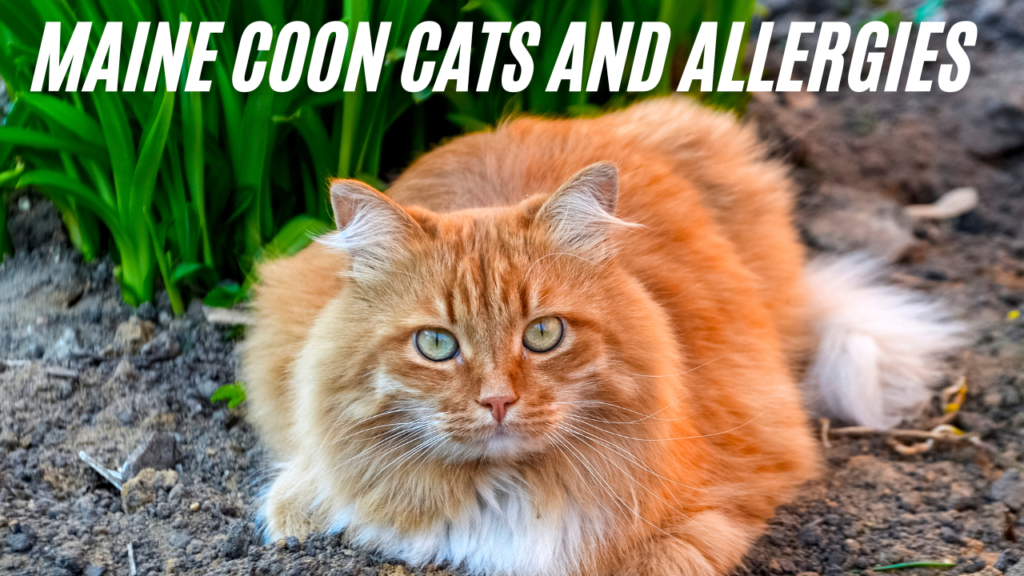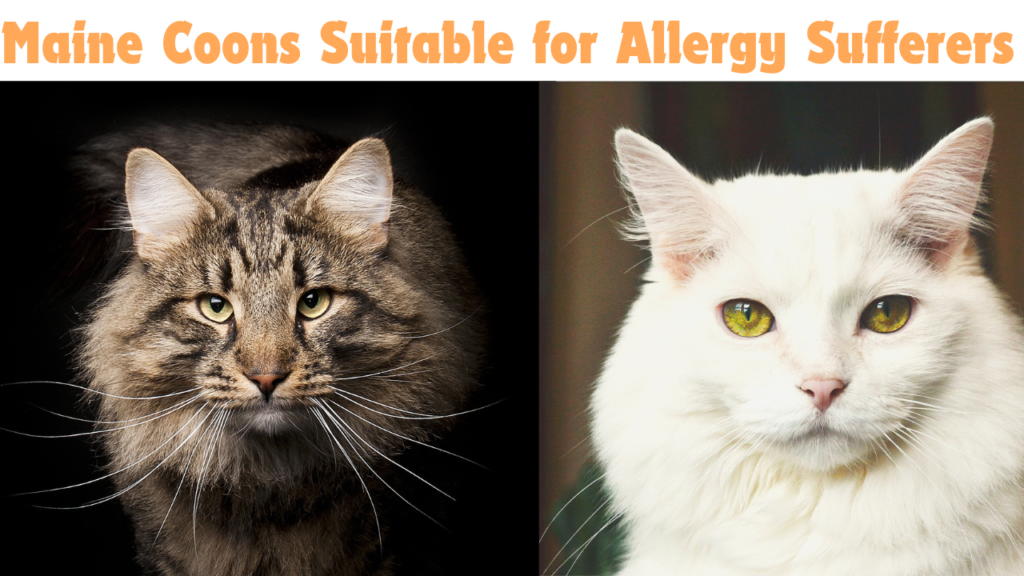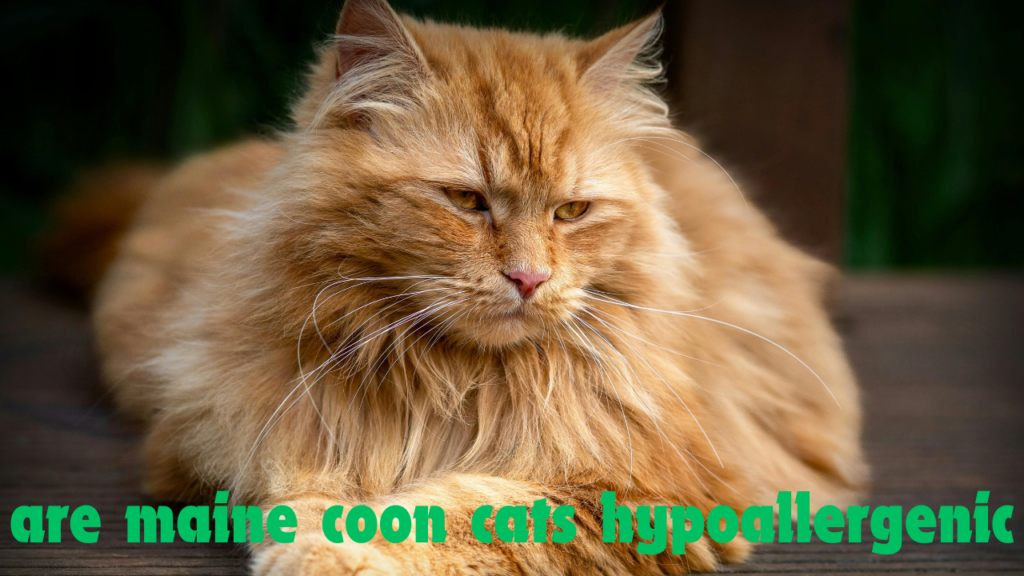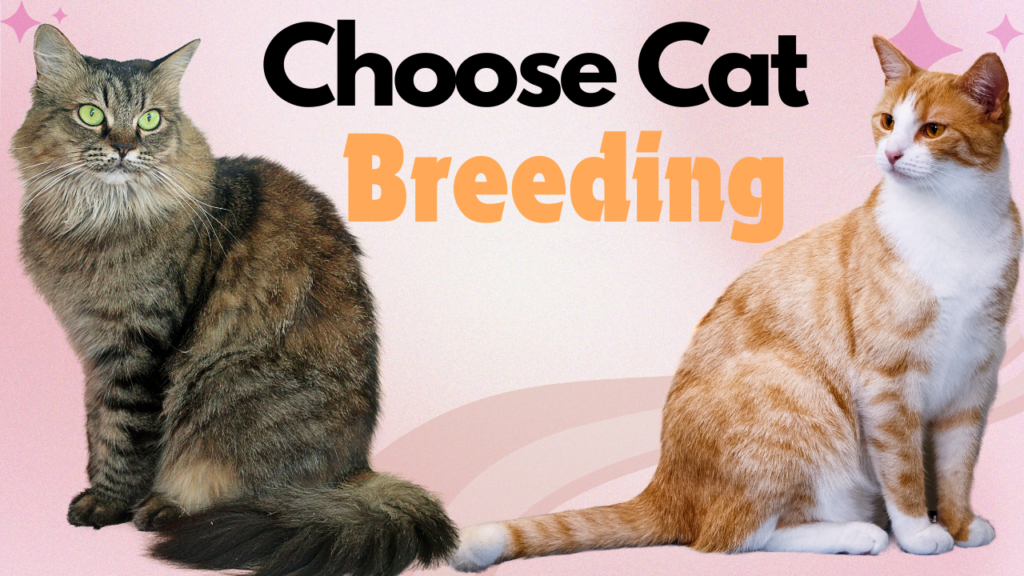Maine Coon cats are beloved for their majestic appearance, affectionate personality, and playful demeanor. However, for individuals prone to allergies, one critical question often arises: Are Maine Coon cats hypoallergenic? In this detailed guide, we will explore this topic, delving into what causes cat allergies, how Maine Coon cats may affect allergy sufferers, and tips for minimizing allergic reactions.
Understanding Cat Allergies
What Causes Allergies to Cats?
Cat allergies are primarily triggered by proteins found in a cat’s saliva, skin (dander), and urine. The main culprit is a protein called Fel d 1, which cats produce naturally. When a cat grooms itself, the protein-laden saliva dries on the fur and skin, eventually becoming airborne as dander. This can lead to sneezing, watery eyes, and even asthma in sensitive individuals.
Do Maine Coons Produce Less Fel d 1?
Maine Coon cats are not hypoallergenic because they produce Fel d 1, just like all other cat breeds. There is no scientific evidence to suggest that Maine Coons produce significantly less of this protein compared to other breeds. However, individual variation exists among cats, and some Maine Coons may produce slightly less Fel d 1, potentially reducing the severity of allergic reactions for some people.
Maine Coon Cats and Allergies
Why Maine Coons Are Often Thought to Be Hypoallergenic
Maine Coons have long, thick fur, which might lead to the misconception that they are hypoallergenic. Some believe their dense coat traps allergens, preventing them from spreading. However, this characteristic does not eliminate allergens but might reduce their immediate dispersion into the air.
Shedding and Allergen Spread
Maine Coons tend to shed moderately to heavily, with shedding often increasing during seasonal transitions. Shedding can spread dander and exacerbate allergies. Regular grooming is essential to manage shedding and minimize allergen levels in your home.

Tips for Allergy Management with Maine Coons
While Maine Coons are not hypoallergenic, there are several steps allergy sufferers can take to coexist with these beautiful cats:
1. Regular Grooming
Brush your Maine Coon regularly to remove loose fur and dander. Frequent grooming reduces the amount of allergen-laden fur that becomes airborne. Consider hiring a professional groomer if you are highly sensitive.
2. Frequent Cleaning
Vacuum carpets, furniture, and curtains with a vacuum equipped with a HEPA filter.Clean your cat’s bedding and toys each week to reduce the accumulation of allergens.Hard flooring instead of carpets can also make cleaning more effective.
3. Use Air Purifiers
HEPA air purifiers can help capture airborne allergens, reducing their presence in your home. Place air purifiers in the areas your cat occupies most often.
4. Create Cat-Free Zones
Designate certain rooms, such as your bedroom, as cat-free zones.This creates a safe haven where you can unwind without encountering allergens.
5. Wash Hands and Clothes
Always wash your hands after petting your Maine Coon and change clothes if you’ve been in close contact. This reduces the chance of allergens spreading to your skin and respiratory system.
6. Consult an Allergist
If your symptoms persist, consider visiting an allergist. They can provide personalized recommendations and may suggest immunotherapy (allergy shots) to reduce your sensitivity to cat allergens.
Are Maine Coons Suitable for Allergy Sufferers?
The suitability of a Maine Coon for allergy sufferers depends on the severity of the individual’s allergic reactions and their willingness to manage allergens. While no cat is truly hypoallergenic, some people find that their symptoms are milder with certain breeds or specific cats. Spending time with a Maine Coon before adopting can help gauge your reaction.

Myths About Hypoallergenic Cats
1. Hairless Cats Are Allergy-Free
Some believe hairless cats, like the Sphynx, are hypoallergenic. However, these cats still produce Fel d 1, which can spread through their skin and saliva.
2. Light-Colored Cats Cause Fewer Allergies
There is no scientific evidence linking a cat’s color to allergen levels. Allergic reactions are more related to individual protein production than physical appearance.
3. Regular Baths Eliminate Allergens
While bathing your Maine Coon can temporarily reduce allergens, frequent baths can dry out their skin and lead to overproduction of dander. It is best to consult your vet before starting a bathing routine.
Conclusion
Maine Coon cats are not hypoallergenic, but their unique charm and loving nature make them irresistible to many cat enthusiasts. While living with a Maine Coon as an allergy sufferer may require extra effort, the bond you share with this gentle giant can be well worth it. By understanding the nature of cat allergies and implementing proactive management strategies, you can enjoy the company of a Maine Coon while keeping allergic reactions in check.
# : READ ANOTHER POSTS
1 : Can Cats Eat Donuts? A Guide to Feline Nutrition and Health Risks
2 ; The Majestic Black Maine Coon Cat: An In-Depth Exploration
3 : How to Tell If a Stray Cat is Pregnant: Comprehensive Guide for Caregivers
4 : How to Measure Your Cat’s Heart Rate While Purring: A Comprehensive Guide


